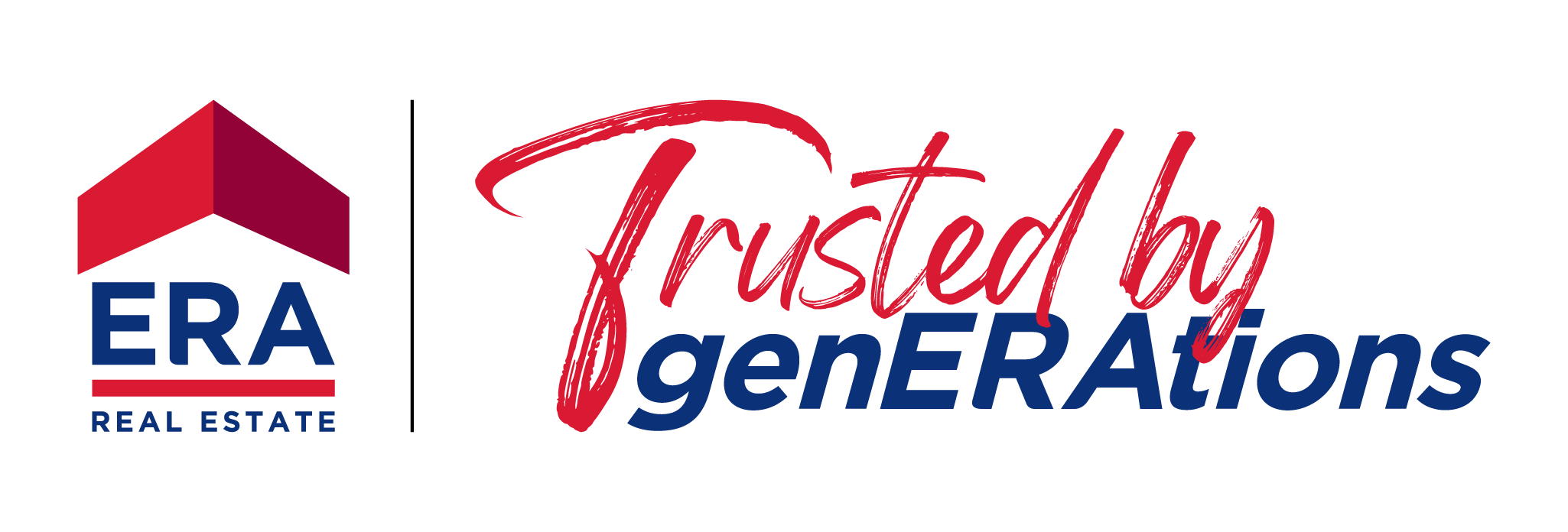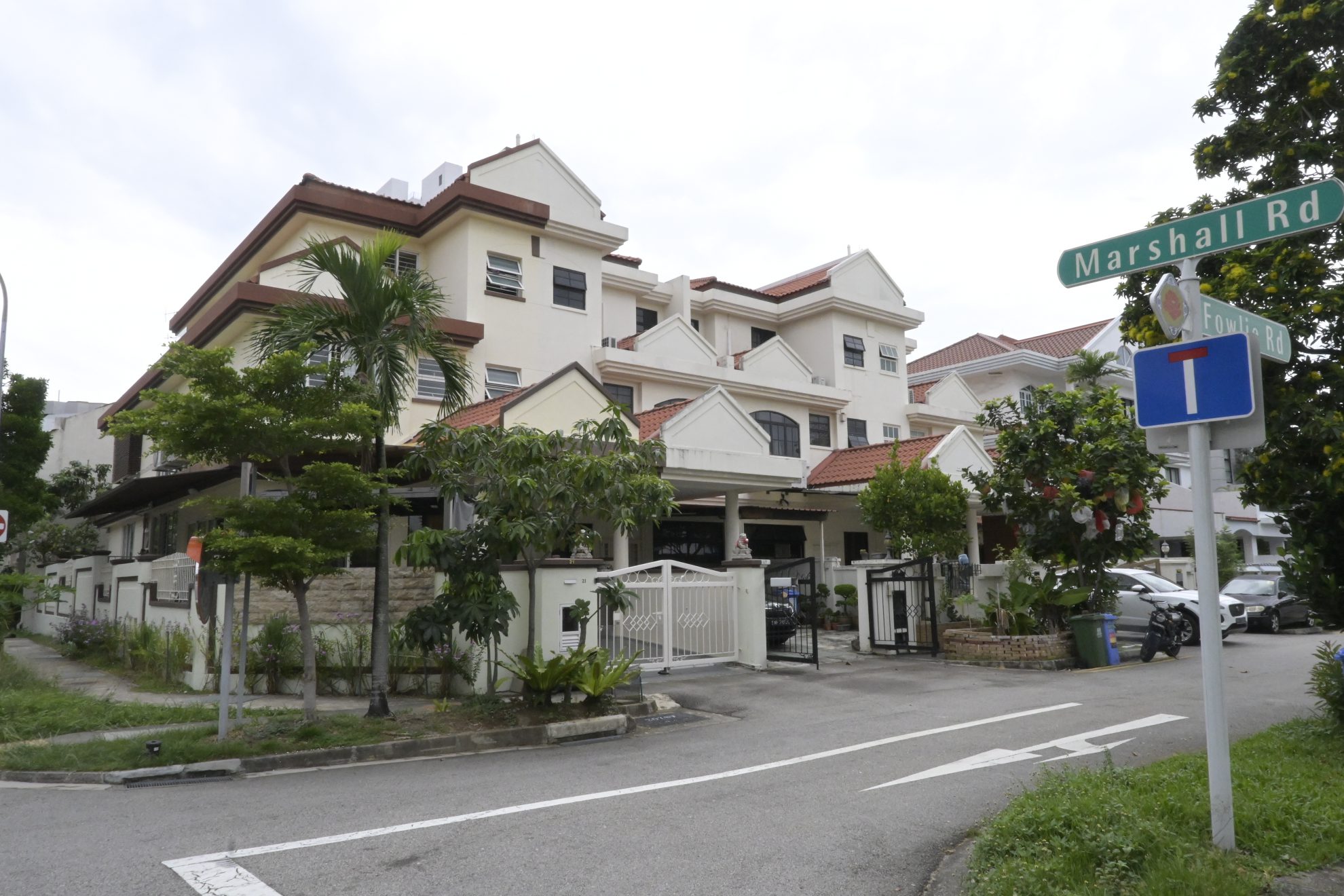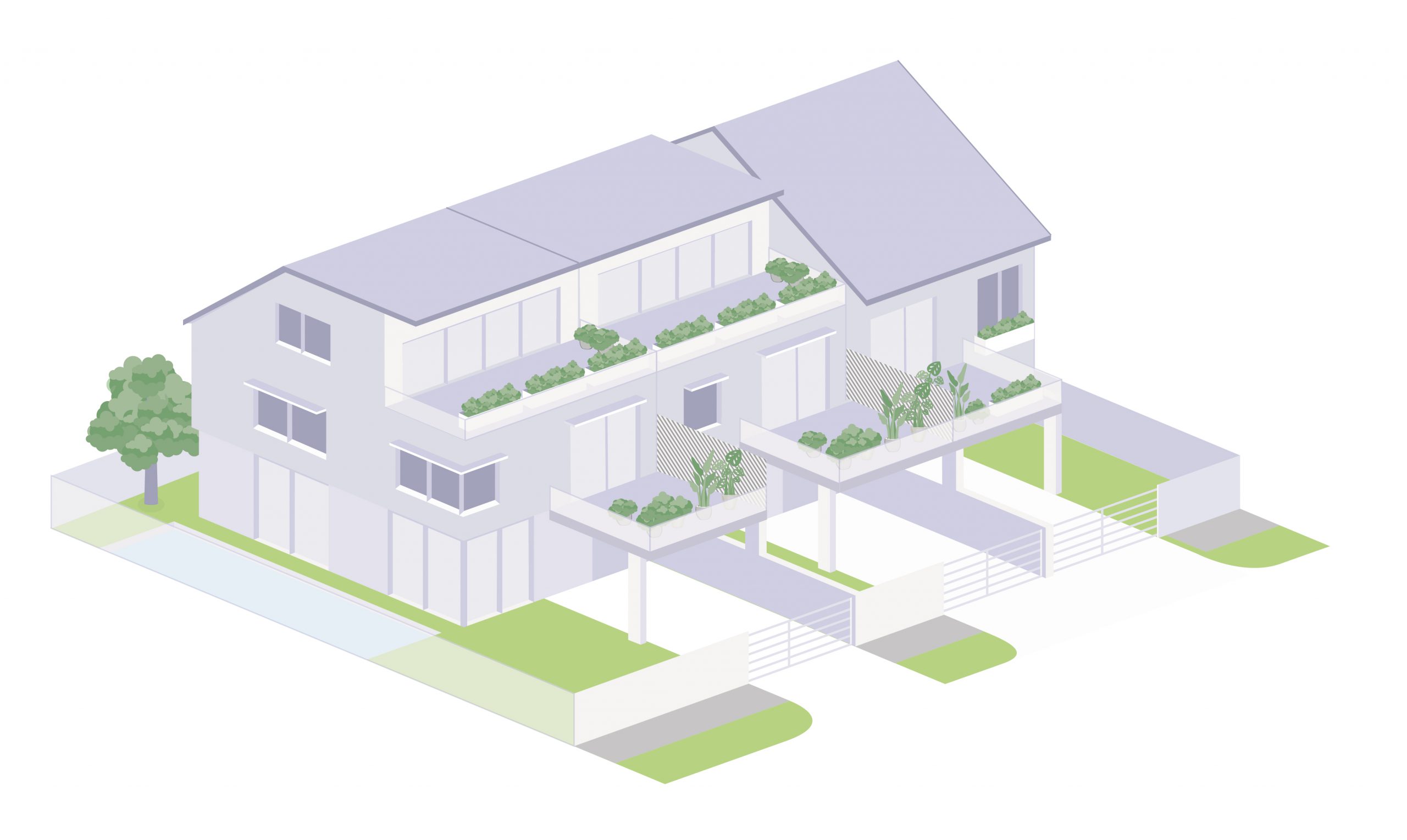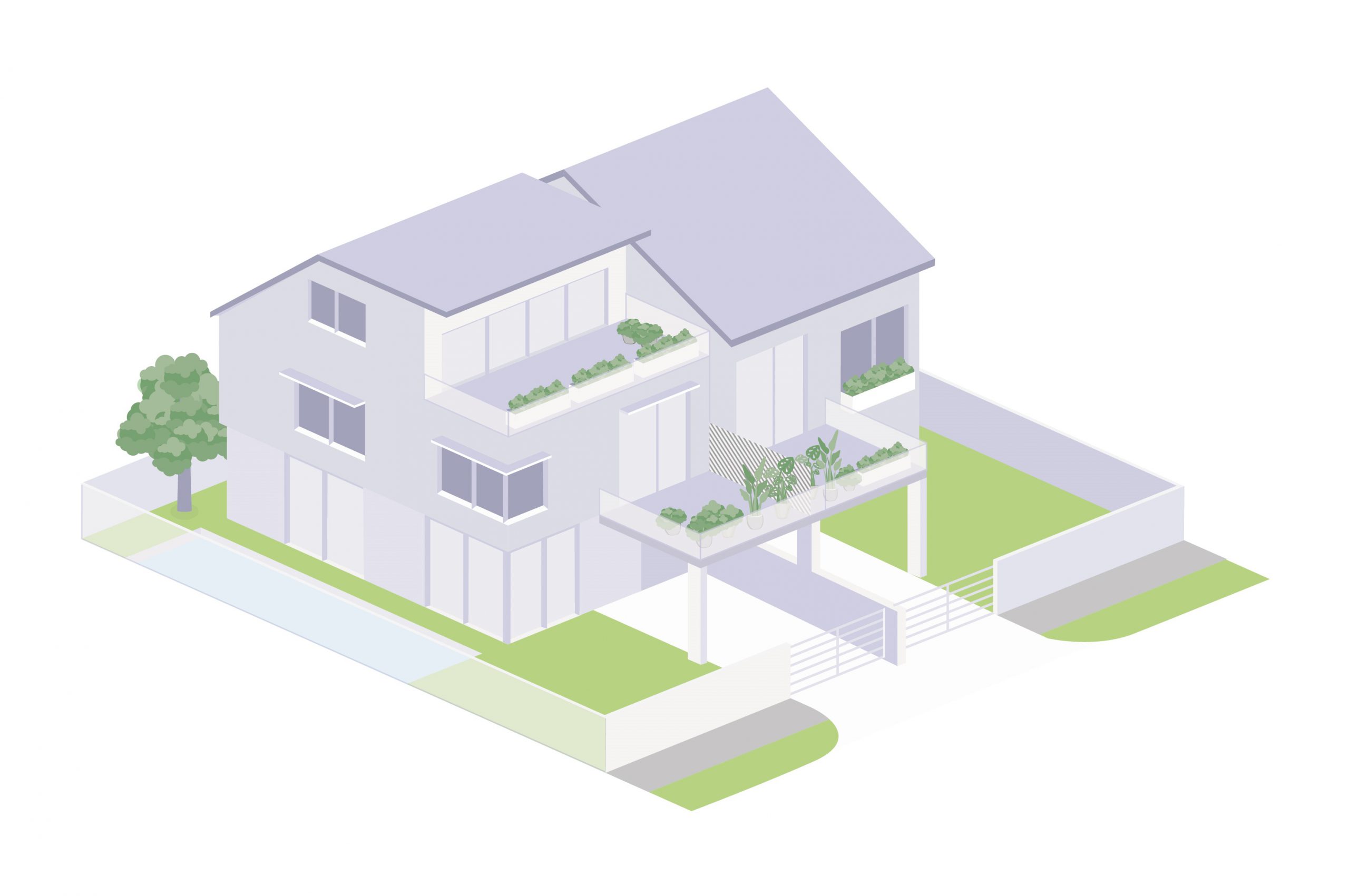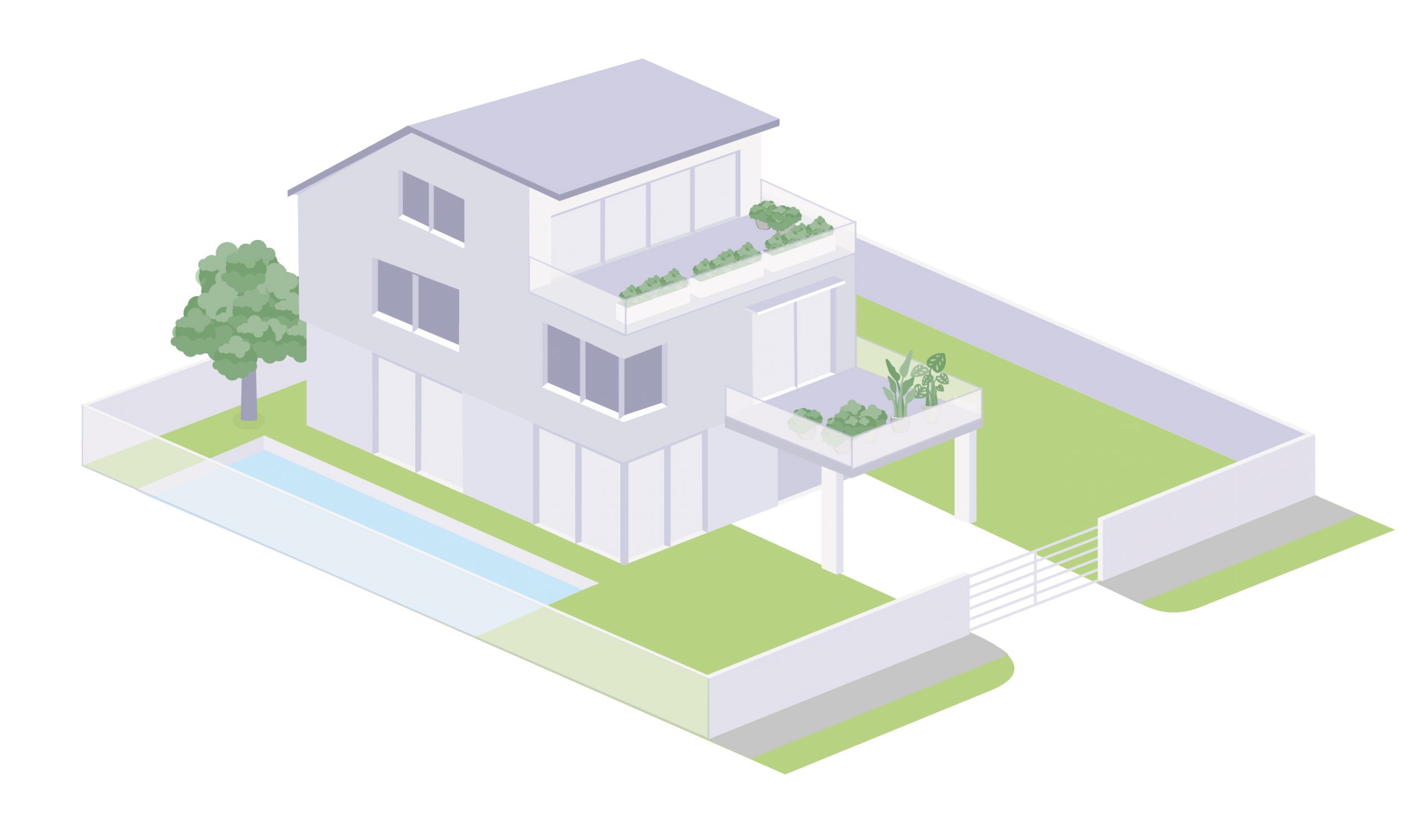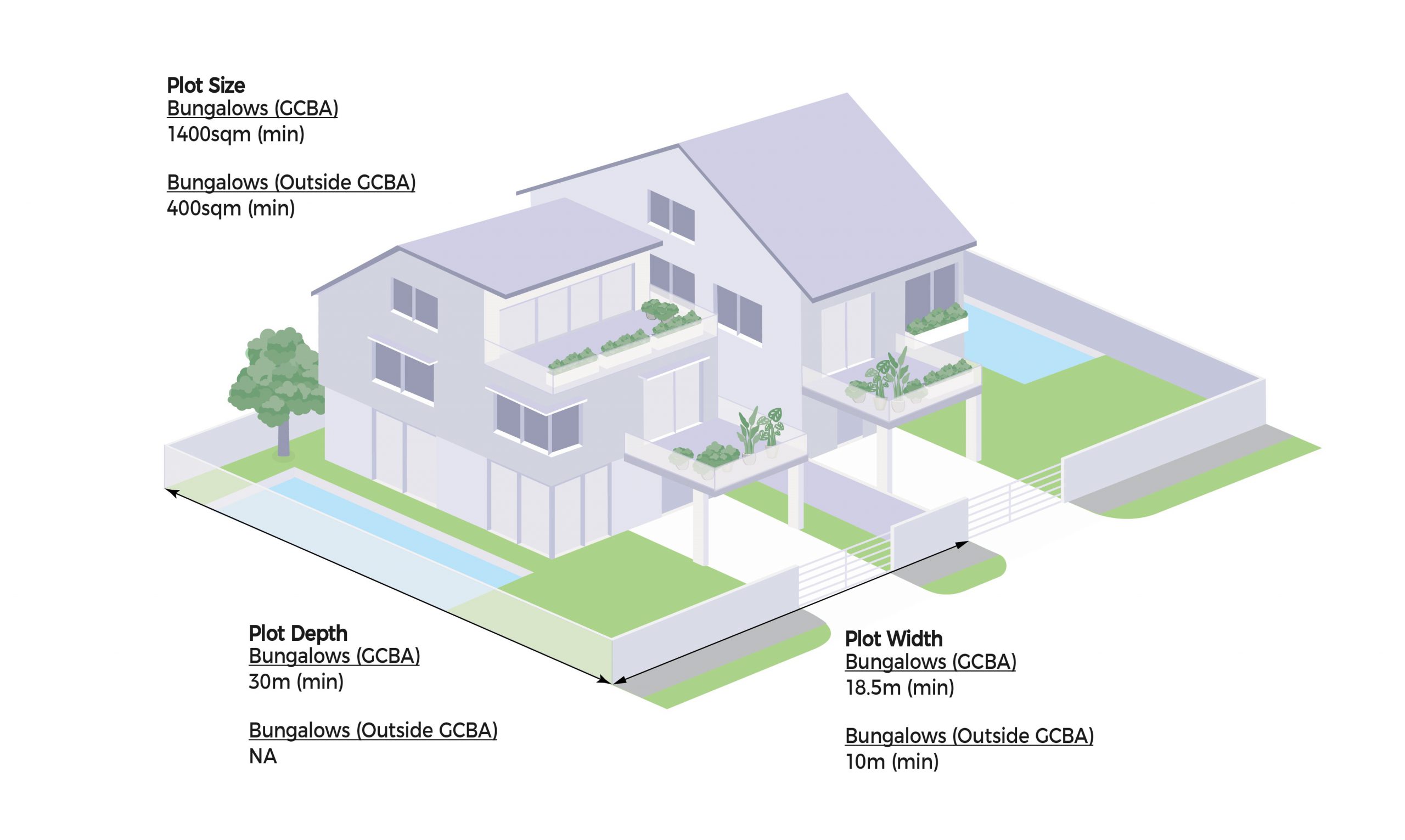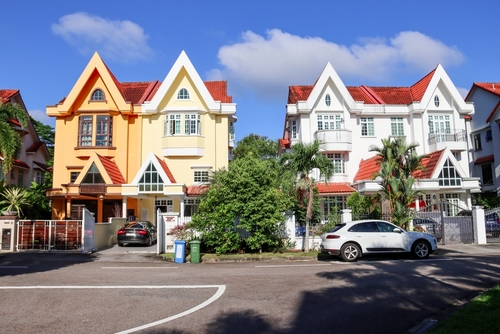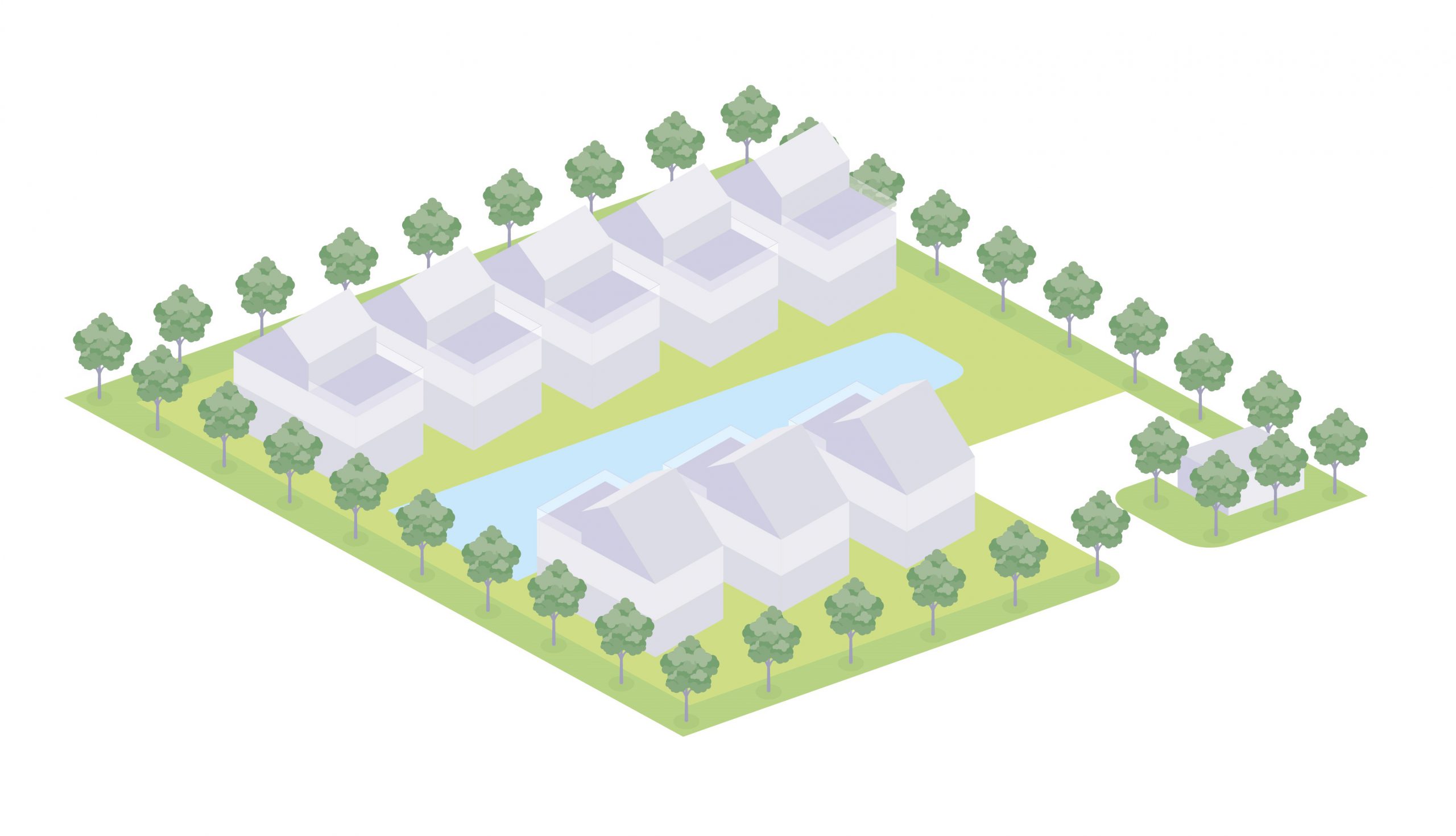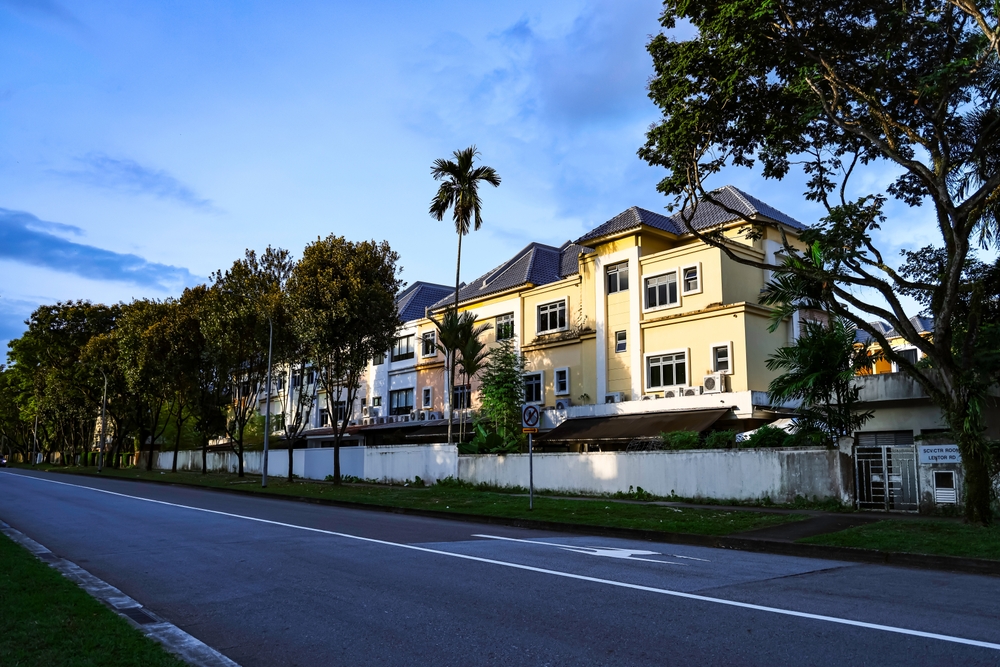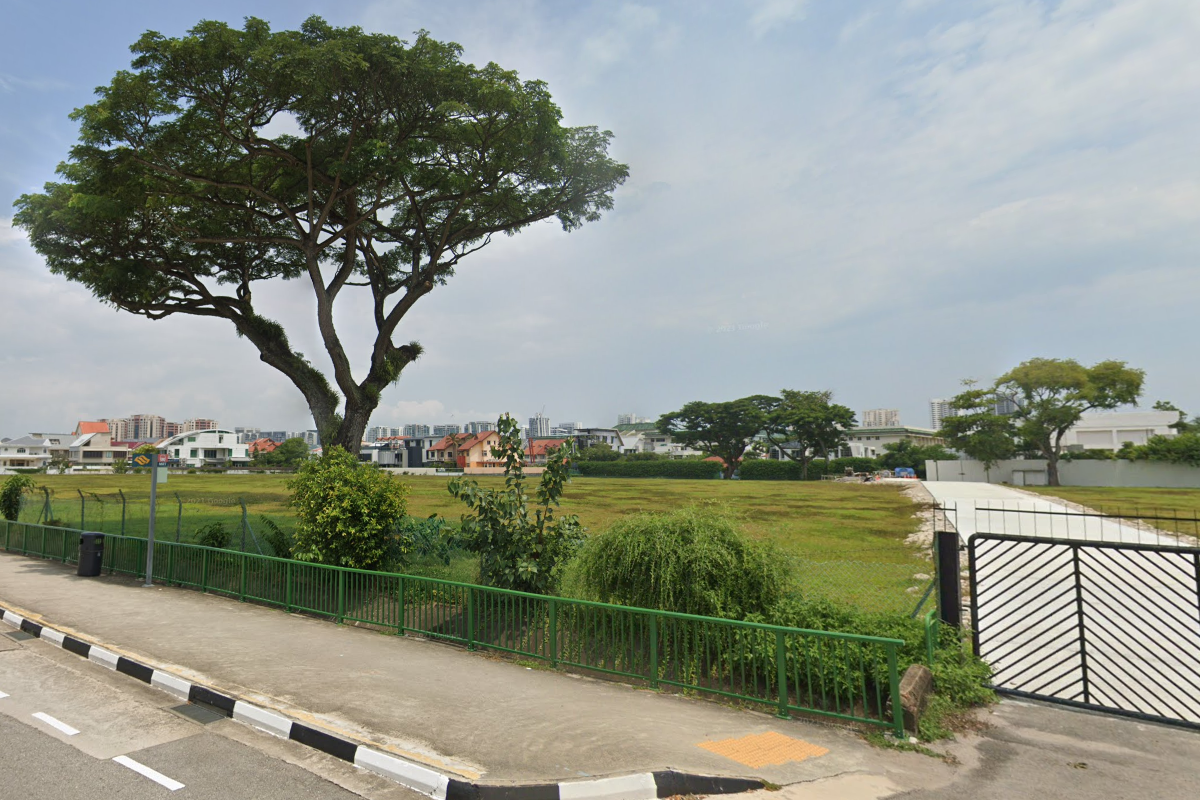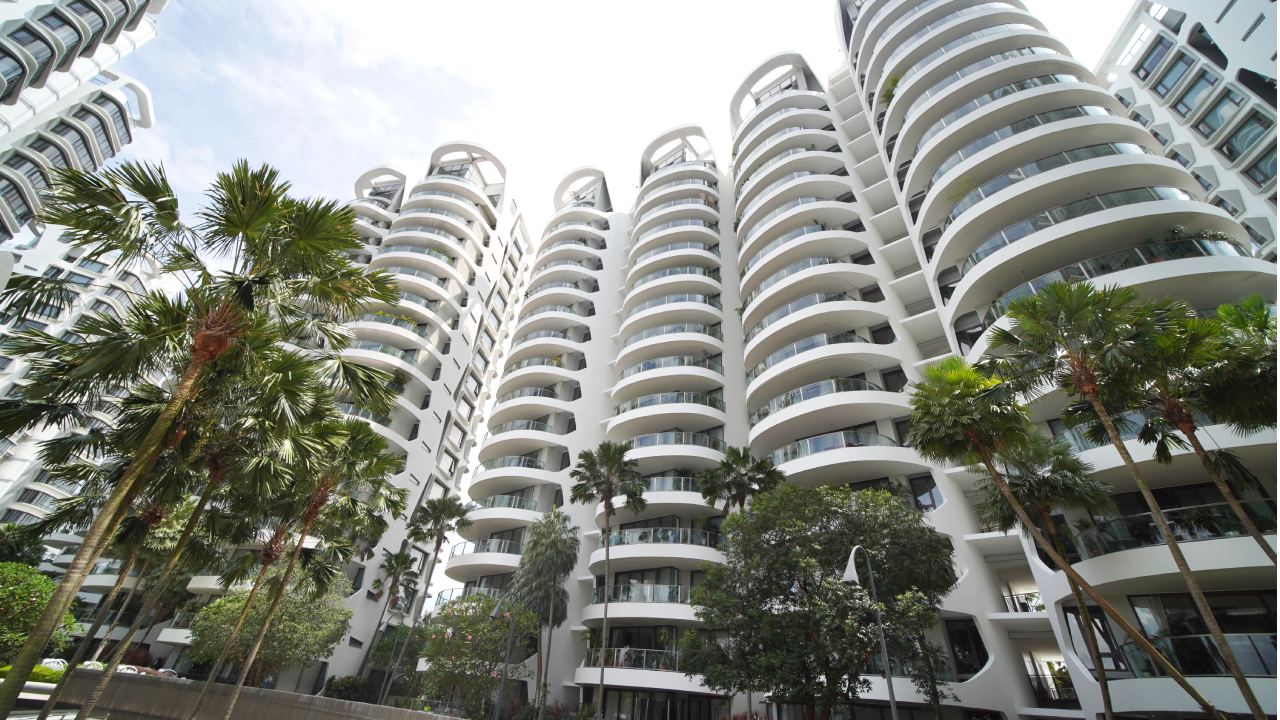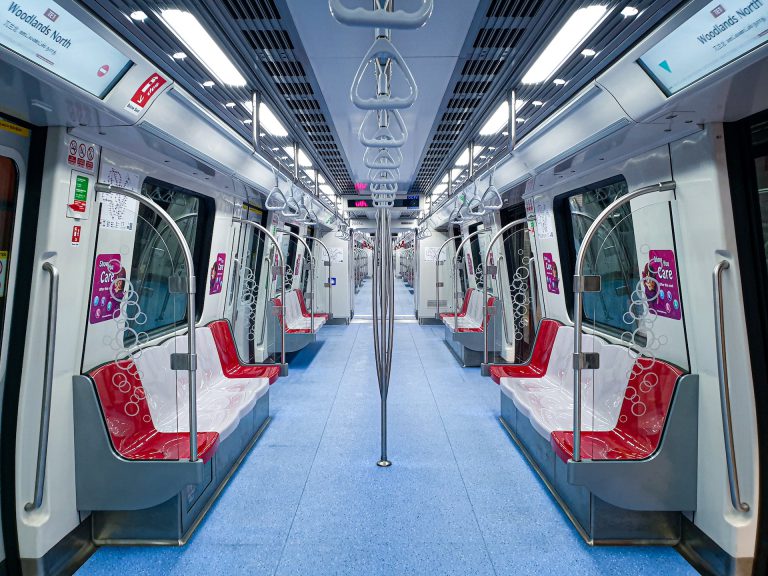Landed Property in Singapore 101: Understanding Types, Leases, and More!
- By Ethan Hariyono
- 4 mins read
- Private Residential (Landed)
- 30 May 2024
Among the three types of residential properties available in Singapore, from HDBs, to condos, and lastly landed property, landed property is the most elusive. Making up only 17.9% of private housing in Singapore, there is much about the landed property segment that most don’t know about.
Not only are landed properties expensive, they come with other expenses. Depending on the age of the house itself, the cost to maintain the house varies, with brand new rebuilds having lower maintenance costs. Having additional features in a landed home, such as lifts or a swimming pool also incurs additional costs for homeowners.
Despite this, landed properties are often seen as ‘dream homes’ by Singaporeans. Surpassing other property types in terms of size, exclusivity and privacy, they are a symbol of affluence, and that one has ‘made it’ in life.
Here are three important things you need to know about landed property to get you started.
What are the different landed property build types?
There are four landed build types in Singapore: terrace houses, semi-detached houses, detached houses (or bungalows) and Good Class Bungalows (GCB). They differ from one another in categories such as minimum plot size, width, depth, site coverage, setback control, roof overhang clearance and location (in the case of GCBs)
-
Terrace Houses
Terrace houses are the most common landed house type in Singapore. They are characterised by shared side walls between each other. They are often built with at least three units in a row, consisting of at least one intermediate unit and two corner units
Intermediate terrace units share walls on both sides of the house, and are often cheaper than their corner terrace counterparts.
Corner units are usually more expensive as they have a larger land area, due to only sharing one common wall.
-
Semi-detached Houses
Semi-detached homes (also called semi-Ds) comprise a pair of conjoined houses, each with its own land title, separated by a common party wall or partition. Semi-detached houses have a minimum plot size of 200 sqm, or approximately 2,160 sqft.
-
Detached houses (Bungalows)
In contrast to the aforementioned house types, detached houses (often called bungalows) are completely independent of its neighbours.
They are regarded as a top tier landed property in Singapore due to their scarcity and land size. These properties must be no smaller than 400sq. m or approximately 4,360 sqft.
One of the main attractions of living in a detached house is exclusive privacy, as they do not share walls with their neighbours. The large land space also offers homeowners greater freedom with the construction of the house and other features.
4. Good Class Bungalows (GCBs)
The golden goose of all residential property in Singapore, GCBs are the most prestigious and expensive housing type in Singapore. Not only does the land size have to exceed 1,400 sqm in size (or 15,070 sqft), they have to fulfil the select criteria:
– be in one of the 39 gazetted areas zoned for GCBs
– Be no more than two storeys high (excluding an attic and a basement)
– Have a minimum plot width x depth of 18.5m x 30m
– The site coverage (area covered by the building or building features) cannot exceed 35% of the plot
Landed vs Strata Landed: Key Differences
The type of land a landed house sits on, determines if the house is a Strata Landed or Landed house.
When you purchase a landed home, you own the land title of the property. While in a strata landed home, you own a strata title. This means you own an individual title to your unit, instead sharing the land and facilities built on it – like in a condo.
Landed houses
When you own landed houses, you own the title to the land itself (land title). This gives you the freedom to do whatever you want to the structure of the house, such as the ability to completely tear it down and rebuild it from the ground up (in accordance with URA and BCA restrictions of course).
With the exception of Sentosa Cove, or specific approval from the Singapore Land Authority, foreigners cannot purchase landed properties.
In Singapore, foreigners can only buy non-landed properties – except in Sentosa Cove for their own stay.
Strata landed houses
In the case of strata landed houses, you do not own the land. You own a strata title instead, or a share of the land with other owners. Similarly to a condo, these properties are clustered within a gated compound and contain facilities. As a result, they are also often referred to as ‘cluster houses’.
The very obvious drawback to owning a strata landed house is that you cannot do as you please with them. This involves any work done to the outside of the house, such as repainting the façade or changing the window panels. The management committee has to approve any changes you want to make to a property as these strata homes are part of a development and must maintain its identity.
In addition to this, cluster houses share a common vehicular access point. They tend to see congestion in parking spaces, often leaving owners with only one lane to drive through. This is due to these houses housing multi-generational families, who often have more than one car.
Foreigners looking for a landed home outside of Sentosa Cove can look towards strata landed houses within an approved condominium development (under the SLA planning act). However, they are not allowed to rent out their landed property, and can only buy one for their own stay.
Landed property lease types
Some people might have the misconception that all landed property is freehold. On the contrary, leasehold landed properties also exist. They have varying tenures, from 70, 90, 103 year leases. The length of these leases can go up to 999, 9,999 and 99,999 years, which makes them as good as freehold.
Table 1: Median Prices of Freehold and Leasehold landed property in 4m 2024
| Terrace | Semi-detached | Detached | |
| Freehold | $3,900,000 | $6,180,000 | $11,690,000 |
| Leasehold (under 103 years) | $2,639,000 | $3,500,000 | $5,250,000 |
| % Difference | 32.3% | 43.4% | 55.1% |
Source: URA as of 29th May 2024, ERA Research and Market Intelligence
Leasehold and freehold landed houses see a significant price disparity, with freehold landed houses costing about 41.5% more than leasehold ones.
Freehold landed properties are generally seen as the superior choice a for investment buyers, or those seeking capital gains.
Leasehold properties see their value deteriorate at a certain point due to lease decay. An example of this would be the houses at Jalan Chempaka Kuning and Puteh, which recently made the news. The land leases of these homes will expire in 10 years, where the units will have to be vacated, and land ownership returned to the state.
At the same time, they offer an opportunity for homebuyers to purchase and live in a landed home at a more accessible price point.
Conclusion
Landed houses come in various sizes and build types, and offer the most customisation available on the market. This makes them highly sought after by homebuyers with specific needs. For example, they make a fantastic choice for multi-generational families. These families often need large living spaces (upwards of 2,000-3,000 sqft), which are hard to find in an HDB flat or condo nowadays.
Many people dream of owning a landed property, particularly a freehold one. This is because of their stored value, making them fantastic instruments for capital gains or legacy planning.
There are also buyers that covet a landed home as they believe it is the most suitable form of housing for their desired lifestyle. They may be drawn towards leasehold landed properties despite shorter remaining leases. They value the privacy and space a landed home provides, especially at the lower price point.
While landed properties are the most expensive form of property in Singapore, they are not entirely out of reach for those looking to upgrade to their dream home. Being aware of the different options on the market opens up more accessible options if you are truly interested in owning a landed home.
With this knowledge, you are now ready to explore the intricate landscape that is the landed housing market in Singapore.
If you are interested in purchasing or finding out more about landed property in Singapore, do not hesitate to reach out to an ERA Trusted Advisor today!
Disclaimer
This information is provided solely on a goodwill basis and does not relieve parties of their responsibility to verify the information from the relevant sources and/or seek appropriate advice from relevant professionals such as valuers, financial advisers, bankers and lawyers. For avoidance of doubt, ERA Realty Network and its salesperson accepts no responsibility for the accuracy, reliability and/or completeness of the information provided. Copyright in this publication is owned by ERA and this publication may not be reproduced or transmitted in any form or by any means, in whole or in part, without prior written approval.
